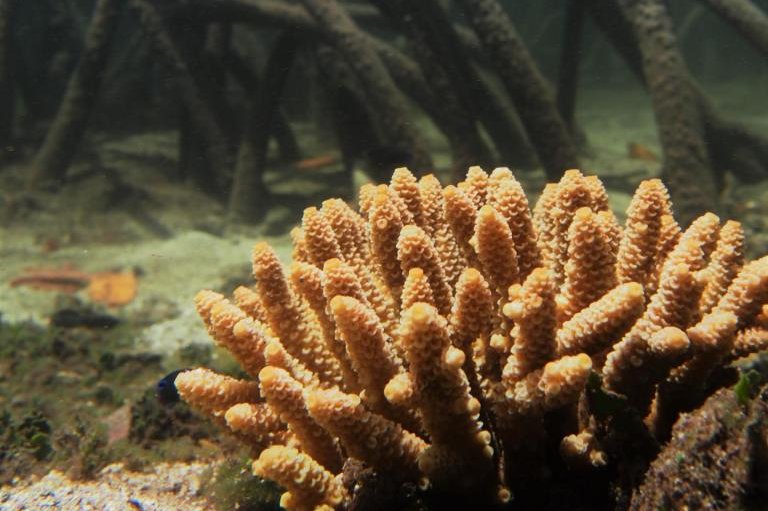Scientists found 34 coral species capable of surviving extreme conditions living in mangrove lagoons in the Great Barrier Reef. Photo by Emma Camp/UTS
Aug. 29 (UPI) -- Corals capable of withstanding extreme conditions have been found inside mangrove lagoons around Australia's Great Barrier Reef.
Scientists found 34 coral species living in the "hot spots" of coral resilience. Inside the lagoons, the so-called "extreme corals" are exposed to high acidity, low oxygen and highly variable temperature conditions.
By studying coral species that have adapted to rapidly shifting ocean conditions, scientists can gain insight into how coral will respond to climate change and other environmental stressors.
"This highlights the need to study environments that would usually be considered unfavorable to corals in order to understand how stress tolerance in corals works," Emma Camp, research fellow at the University of Technology Sydney, said in a news release. "There is a lot we don't know. For example are these extreme corals already at their limit, can they survive more stress, if we transplant them to more stable environments will they maintain their stress tolerance?"
Camp and her colleagues have previously documented resilient coral species living in the lagoon waters of New Caledonia.
Researchers collected and analyzed samples from corals living in the Great Barrier Reef's mangrove lagoons. Their research -- published this week in the journal Marine Ecology Progress Series -- showed the corals alter their photosynthetic patterns to accommodate the fluctuating conditions. Microbial diversity also helps protect the corals from stressors, researchers determined.
"It's likely these mangrove lagoon corals have the best chance to persist into the future given that they are already conditioned to the complex interaction of warmer waters, ocean acidification and deoxygenation predicted for reefs under climate change," said David Suggett, an associate professor of marine biogeochemistry at UTS.
Scientists suggested stronger conservation efforts are needed to protect ecosystems like the Great Barrier Reef's mangrove lagoons, where corals are able adapt and survive.















